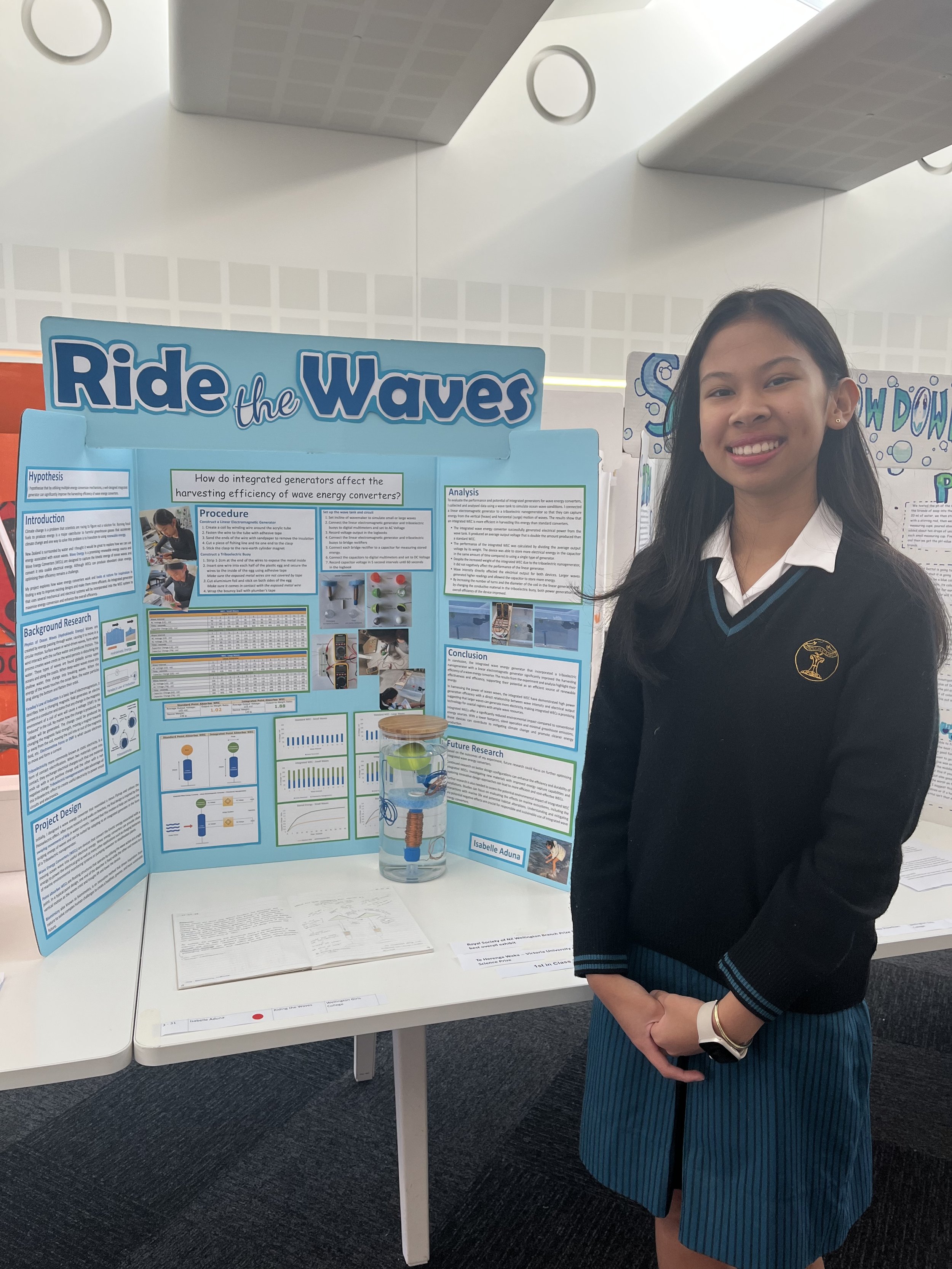Wellington Regional Science Fair prize for 2024
Our winner is Reese Lingad in Year 9 at Upper Hutt College.
SmartTrash: Training AI to Identify Common Recyclables
"My aim with the project was to train an Artificial Intelligence to recognise and sort recyclable and non-recyclable objects into different categories.
I specifically selected a small data set - pictures of paper cups, cans, and plastic bottles - to train an AI model using Lobe, a Microsoft program.
Then, I created the SmartTrash machine from a shoebox, Raspberry Pi camera, LEDs, resistors, wires, and a Raspberry Pi small computer.
Using Python, I created a program that accesses the camera, LEDs and the AI model; automatically takes pictures of objects inside the box; determines what recyclable it is using the model; and lights up the corresponding LED from the AI prediction.
The main takeaway from my tests is that AI is not perfect and although the SmartTrash's accuracy got up to 88.5%, one would need very large databases to truly achieve 100% accuracy.
My project may have many applications in everyday life; for example, integrated into public trash bins or recycling plants; or to automatically detect groceries in physical store carts or products in vending machines."
NIWA SCIENCE FAIR PRIZE FOR 2023
The 2023 NIWA Wellington Science and Technology Fair Award Ceremony was very successful - as always! Every year, the Wellington Branch provides a prize for the Runner up Best Overall Exhibit. Our winner this year was Isabelle Aduna, a Year 9 student from Wellington Girls’ College. Isabelle’s project was called “Riding the Waves”, and was about exploring wave energy converters and integrated generators. Her prize of $750 was presented at the Award Ceremony, held on Saturday 2 September at 1:00 pm, Te Toki a Rata Lecture Theatre 1, Victoria University of Wellington, Old Government Buildings.
NIWA SCIENCE FAIR PRIZE FOR 2022
This year the Branch awarded a prize of $750 for overall runners-up. Our winners were Kaita Hummel-Jibiki and Simon Langham from Tawa College. David Lillis presented the prize at the award ceremony, held on Saturday 27 August at Victoria University of Wellington, Old Government Building.
Kaita Hummel-Jibiki and Simon Langham are year twelve students at Tawa College. Their project used microbes as bio-indicators of water quality. They say that they are looking forward to studying science in the future. Here is their summary:
Their project, called Resilient Rotifers, focused on constructing a rudimentary way of analyzing water samples via rotifers found in the water. Rotifers are microscopic aquatic invertebrates that are found worldwide. Their physical appearance and characteristics, along with their quantity in certain samples, are so great that they are perfect for use as bio-indicators of water quality. By searching over 12,900mm2 for samples from various populations, they formulated a comprehensive data report which allowed them to identify specific patterns. These patterns were so prominent that a simple flowchart could be constructed. A user would be informed of the approximate pH-level, salinity-level, oxygen-level, nutrient-level, and many more key characteristics of their sample, all on the basis of the quantity and quality of rotifers found in their samples.
niwa science fair prize
We award a prize of $500 to the runner-up in the annual Wellington Regional Science Fair. This year (2021) we awarded our prize to Emma Bateson, Imogen Bell and Liang Dajnowski of Saint Oran’s College for their project entitled “All About the Bays”.
Emma, Imogen and Liang carried out a rocky shore survey at Houghton Bay and Owhiro Bay. The diversity of organisms was compared between bays, synthetic surfaces and rock pools. This data was compared with previous records when the area was polluted with sewerage.
Liang Dajnowski, Emma Bateson and Imogen Bell




